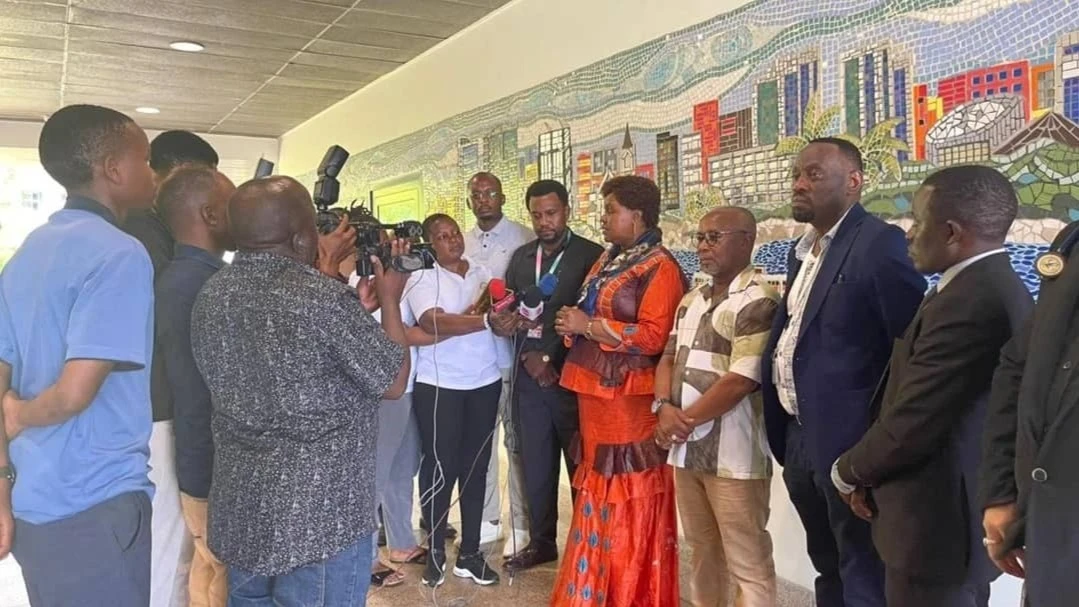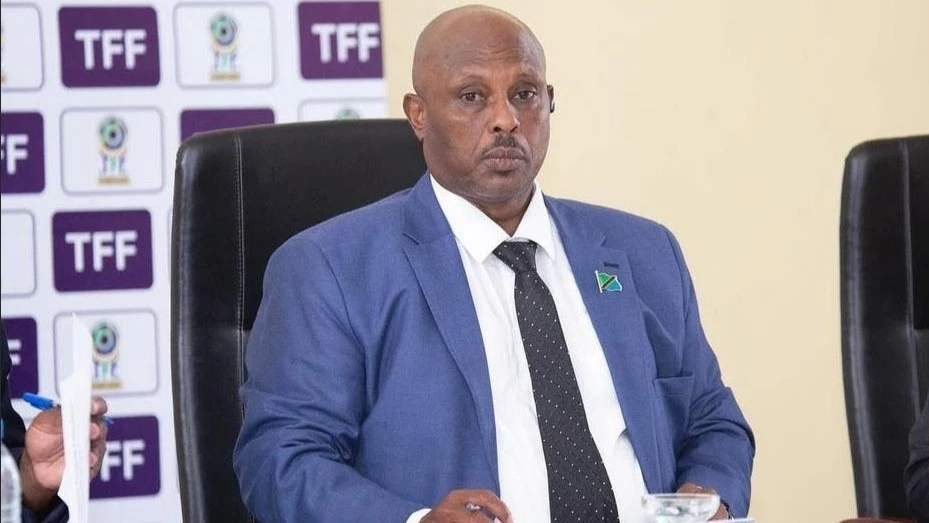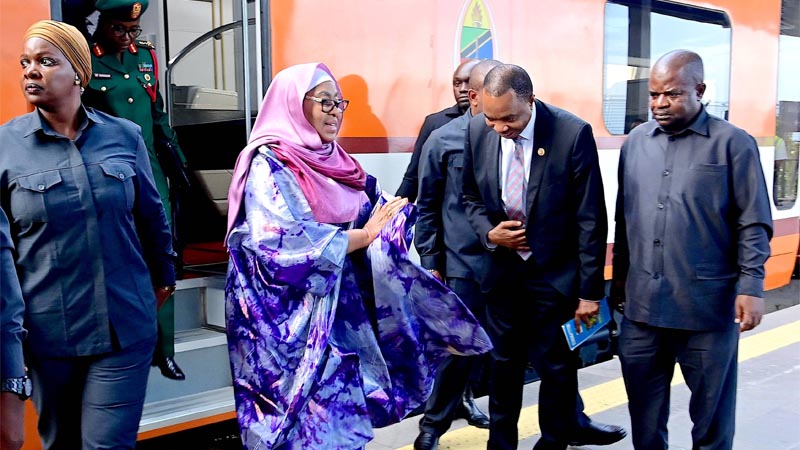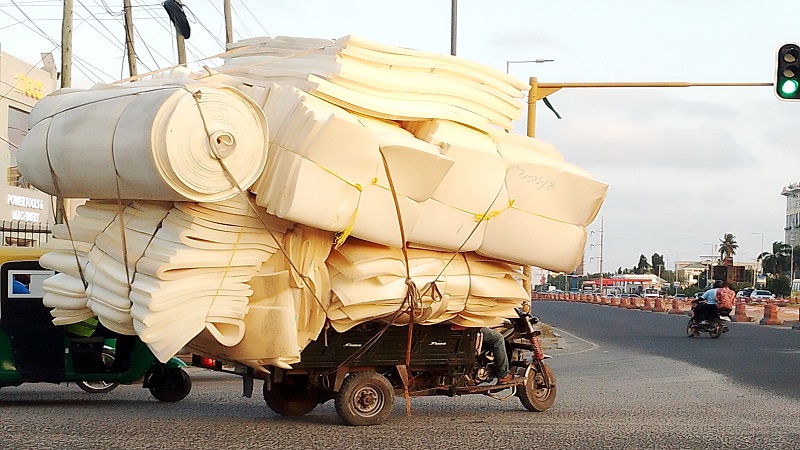Brazil shuts down BYD factory site

Brazilian authorities have halted the construction of a factory for Chinese electric vehicle (EV) giant BYD, saying workers lived in conditions comparable to "slavery".
RIO DE JANEIRO
More than 160 workers have been rescued in Brazil's northeastern state of Bahia, according to a statement from the Public Labour Prosecutor's Office (MPT).
They were allegedly put in a "degrading" environment and had their passports and salaries withheld by a building company.
BYD said in a statement that it had cut ties with the firm involved and remained committed to a "full compliance with Brazilian legislation".
The factory was scheduled to be operational by March 2025, and was set to be BYD's first EV plant outside of Asia.
The workers, hired by Jinjiang Construction Brazil, lived in four facilities in Camaçari city.
At one such facility, workers were made to sleep on beds without mattresses, according to prosecutors.
Each bathroom was also shared among 31 workers, forcing them to get up extremely early in order to be ready for work.
"The conditions found in the lodgings revealed an alarming picture of precariousness and degradation," the MPT said.
"Slavery-like conditions", as defined by Brazilian law, include debt bondage and work that violates human dignity.
The MPT added that the situation also constitutes "forced labour", as many workers had their wages withheld and faced excessive costs for terminating their contracts.
BYD said affected workers had been moved to hotels.
It added that it had conducted a "detailed review" of the working and living conditions for subcontracted employees, and asked on "several occasions" for the construction firm to make improvements.
BYD, short for Build Your Dreams, is one of the world's largest EV makers.
It sold more electric vehicles than Elon Musk's Tesla in the last three months of 2023, as the two battled for top spot in the sector.
The company has also been expanding its foothold in Brazil, which is its largest overseas market by a wide margin.
It first opened a factory in São Paulo in 2015, producing chassis for electric buses.
Last year, it announced that it would invest 3 billion reais ($484.2m) in Brazil to build an EV manufacturing plant.
EV sales in China have been boosted by government subsidies. which encourage consumers to trade their petrol-powered cars for EVs or hybrids.
But there is a growing backlash abroad against what some see as the Chinese government's unfair support for domestic car makers.
Major markets like the US and EU have placed tariffs on EVs from China, with more tariffs expected during the incoming administration of US president-elect Donald Trump.
The rescue of 163 workers who were being held in conditions analogous to slavery and the closure of the lodgings and parts of the construction site of the plant where the car manufacturer Build Your Dreams (BYD) is installing a factory in the municipality of Camaçari, in the metropolitan region of Salvador, was communicated on Monday morning (23) to the company and to Jinjiang Group, one of the contractors hired to carry out the work. The rescued workers will remain in the lodgings, but will not be able to work and will have their employment contracts terminated.
The embargoed accommodations and construction sites will also remain inactive until they are fully regularized with the agencies that make up the task force. The task force responsible for the inspections and developments of this action is composed of the Public Ministry of Labor (MPT), the Ministry of Labor and Employment (MTE), the Public Defender's Office of the Union (DPU) and the Federal Highway Police (PRF), in addition to the Federal Public Ministry (MPF) and the Federal Police (PF).
A joint virtual hearing of the MPT and MTE has been scheduled for the afternoon of the 26th so that BYD and Jinjang can present the necessary measures to guarantee minimum accommodation conditions and also to negotiate the conditions for the general regularization of what has already been detected. The inspection, however, will continue with the analysis of requested documents and the need for new on-site inspections has not been ruled out.
During the series of inspections, which began in mid-November and will continue over the next few days, 163 workers were identified in conditions analogous to slavery at the outsourced company Jinjang, a service provider for BYD. These workers were distributed across four main lodgings, two located on Rua Colorado and two on Rua Umbus, in the municipality of Camaçari. A fifth lodging, intended for workers in administrative roles, was also inspected, but despite identifying some irregularities, no workers were rescued.
The conditions found in the lodgings revealed an alarming picture of precariousness and degradation. In the first lodging on Colorado Street, the workers slept on beds without mattresses and had no lockers for their personal belongings, which were mixed in with food supplies. The sanitary situation was especially critical, with only one bathroom for every 31 workers, forcing them to wake up at 4 a.m. to form a line and be ready to leave for work at 5:30 a.m.
The second lodging on Colorado Street, intended mainly for welders, presented similarly precarious conditions. Although there was material on the beds, these were in fact only 3cm thick coverings, insufficient to provide minimum conditions for use, with some beds not even having such coverings.
All the accommodations shared serious infrastructure and hygiene problems. The bathrooms, in addition to being insufficient, were not separated by sex, did not have adequate toilet seats and presented poor hygiene conditions. The lack of a suitable place to wash clothes led workers to use their own bathrooms for this purpose.
The situation in some of the food courts was equally precarious. The kitchens operated in alarming conditions, with no adequate cupboards for food storage. In one particularly serious case, construction materials were found near the food, and food was stored near the bathrooms in unsanitary conditions. Only one of the barracks had an improvised dining hall, with wooden benches and tables in a semi-covered area, which was still insufficient for all the workers, forcing most of them to eat their meals in their beds.
In one of the rooms, occupied by a cook, pots with prepared food were found left open on the floor, exposed to dirt and without refrigeration, to be served the following day. The workers consumed water directly from the tap, without treatment, and even took it to work in bottles.
The conditions at the construction site also revealed serious irregularities. The cafeteria at the workplace used coolers to serve meals, without ensuring minimum hygiene conditions. The chemical toilets, only eight for approximately 600 workers, were in a deplorable state, without toilet paper, water or adequate maintenance, in addition to not respecting the minimum distances established by regulation.
The workers were exposed to intense solar radiation, showing visible signs of skin damage. Several workplace accidents were recorded, including one case in which a worker suffered an accident due to sleep deprivation caused by inadequate housing conditions and long working hours. Another serious case involved a worker who suffered an eye injury in April and, despite requesting ophthalmological care, never received the appropriate medical follow-up.
The work presented multiple irregularities related to the work environment, leading to the embargo of deep excavation activities and the partial closure of the establishment, specifically the kitchen of one of the accommodations on Rua Colorado. A circular table saw was also closed for not having any safety measures.
In addition to the degrading conditions, the situation constitutes forced labor, due to several indicators found during the inspections: the workers were required to pay a deposit, had 60 percent of their wages withheld (receiving only 40 percent in Chinese currency), faced excessive costs for terminating their contracts, and had their passports withheld by the company. Early termination of the contract implied the loss of the deposit and the amounts withheld, in addition to the obligation to pay for the return ticket and reimburse the cost of the outward ticket.
To give you an idea, if a worker tried to terminate the employment contract after six months, he would leave the country without actually receiving anything for his work, since the discount of the deposit, the ticket to come to Brazil and the payment of the return ticket would, in practice, constitute a total confiscation of the amounts received by the workers throughout the employment relationship.
The working day, in turn, was already set in the contract at ten hours per day, which was aggravated by the lack of regular granting of the breaks provided for in the instrument. A worker who was the victim of a work accident was identified as having not had a break for 25 days. This worker reported tiredness and drowsiness at the time of the accident, demonstrating that the long working hours and the housing conditions, which prevented rest, were crucial factors in the accident.
Top Headlines
© 2025 IPPMEDIA.COM. ALL RIGHTS RESERVED

























